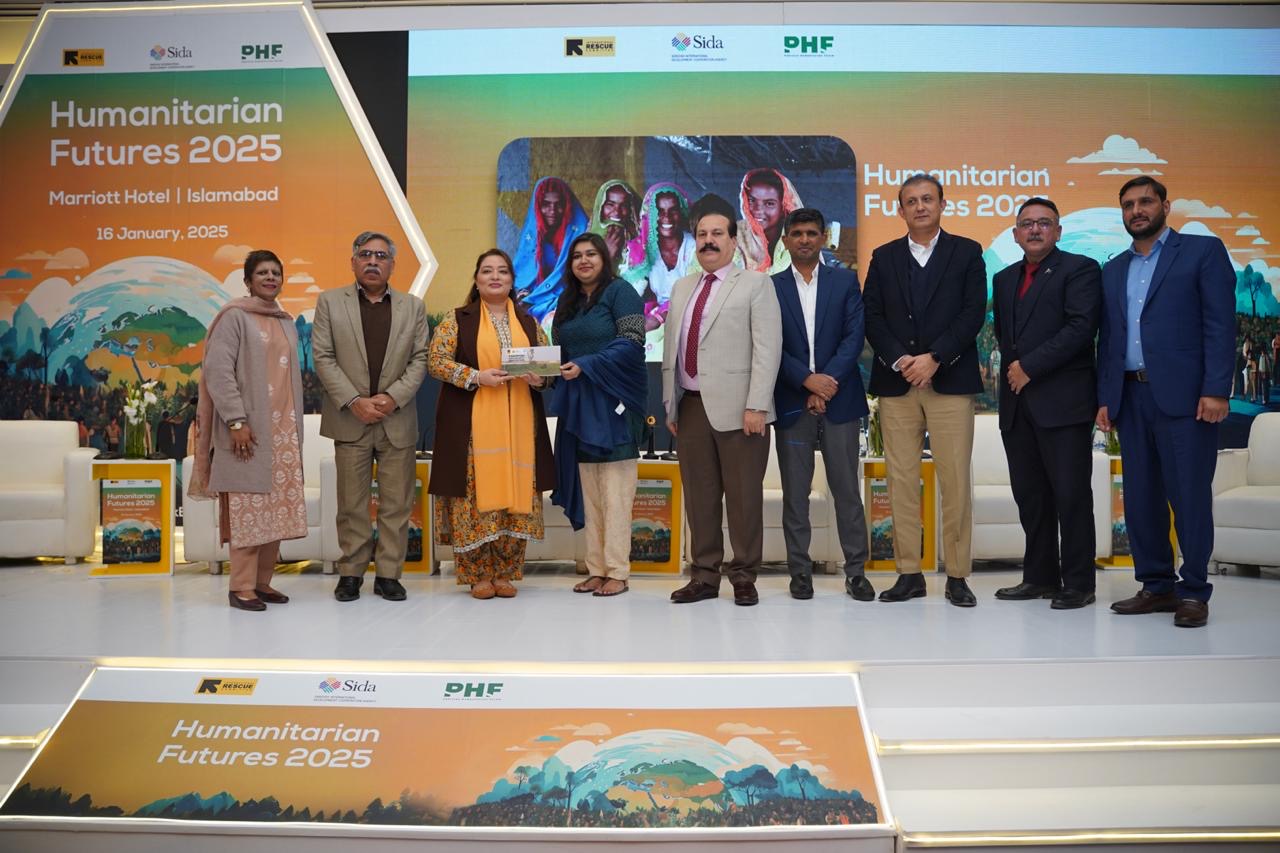 Islamabad 16, January 2025(Kamran Raja) : The International Rescue Committee (IRC) and Pakistan Humanitarian Forum (PHF) co-hosted the “Pakistan’s Humanitarian Future 2025” event supported by Swedish International Development Cooperation Agency (SIDA).
Islamabad 16, January 2025(Kamran Raja) : The International Rescue Committee (IRC) and Pakistan Humanitarian Forum (PHF) co-hosted the “Pakistan’s Humanitarian Future 2025” event supported by Swedish International Development Cooperation Agency (SIDA).
A pivotal gathering aimed at addressing the country’s preparedness and response to the escalating impacts of climate change and associated humanitarian crises and developing way forward for future Climate induced Disasters.
Pakistan contributes less than one percent to global greenhouse gases emissions yet ranks among the top 10 most climate-vulnerable countries worldwide. Increasingly frequent and severe natural disasters, including floods, droughts, heatwaves, and cyclones, have underscored the urgent need for proactive disaster preparedness and response.
Reflecting on lessons learned from past crises such as the 2005 earthquake, the 2010 floods, and the 2022 floods, the event brought together diverse stakeholders, including government representatives, local and international humanitarian agencies, academia, climate scientists, and corporate leaders, to deliberate on strengthening Pakistan’s resilience and response mechanisms.
In his opening remarks Shahid Kazmi (Country Coordinator-PHF) highlighted the role of International Non-governmental Organizations (INGOs) in national development and humanitarian response in Pakistan over last two decades. He noted that recurring emergencies have left an enduring impact across various regions of the country, necessitating extensive rehabilitation and reconstruction.
The event featured a dynamic panel discussion with esteemed speakers, including Idrees Mahsud (Member DRR, NDMA Pakistan), Mubushar Hussain (Manager DRR, NDRMF), Dr. Shah Miran (CEO, MERF), Fatima Arshad (Head of Sustainability, Unilever), and Mohammed Riyas (Emergency Director, IRC). Key topics of discussion were centric to the evolving role of disaster management, the critical need for climate finance, the potential of national NGOs as drivers of change, and best practices and lessons learned from past humanitarian efforts.
Experts shared valuable insights into climate-induced challenges and emphasized fostering locally owned, effective responses through collaboration and innovation. The engaging panel discussion was followed by a Q&A session, providing an opportunity for participants to interact and gain further knowledge from the experts.
The event also showcased the launching of “Pakistan Seed Security Prototype” through the support of UNILEVER and Public Private Partnership (PPP) for leveraging inclusive WASH. Mr. Habibur Rehman (Regional Climate Change Advisor) presented the key highlights of the prototype in term of building the resilience of the farming communities through Green Entrepreneurship to reduce the greenhouse gas emissions which is ultimately contributing to national commitments.
Ms. Romina Khurshid Alam, (Coordinator to the Prime Minister on Climate Change), officiated the event as Guest of Honor. She highlighted the need for comprehensive climate risk management strategies at national, provincial, and district levels. Emphasizing the integration of disaster risk financing into loss and damage efforts, she called for innovative financial tools and inclusive, data-driven strategies to mitigate the escalating costs of climate change. Collaborative actions today will safeguard communities and ecosystems for a more secure and equitable future.
Ms. Lubna Javaid, Deputy Director Programs at IRC Pakistan, delivered the closing remarks. She emphasized the urgency of investing in gender-equal and inclusive climate resilience programming, particularly for refugees facing climate-induced displacement. Highlighting the nexus of climate, poverty, and conflict, she called for accessible climate financing to address humanitarian challenges effectively.
The engaging panel discussions and interactive Q&A sessions fostered dialogue and knowledge-sharing among participants. The event served as a catalyst for exploring new partnerships and actionable strategies to address Pakistan’s unique humanitarian and climate challenges.